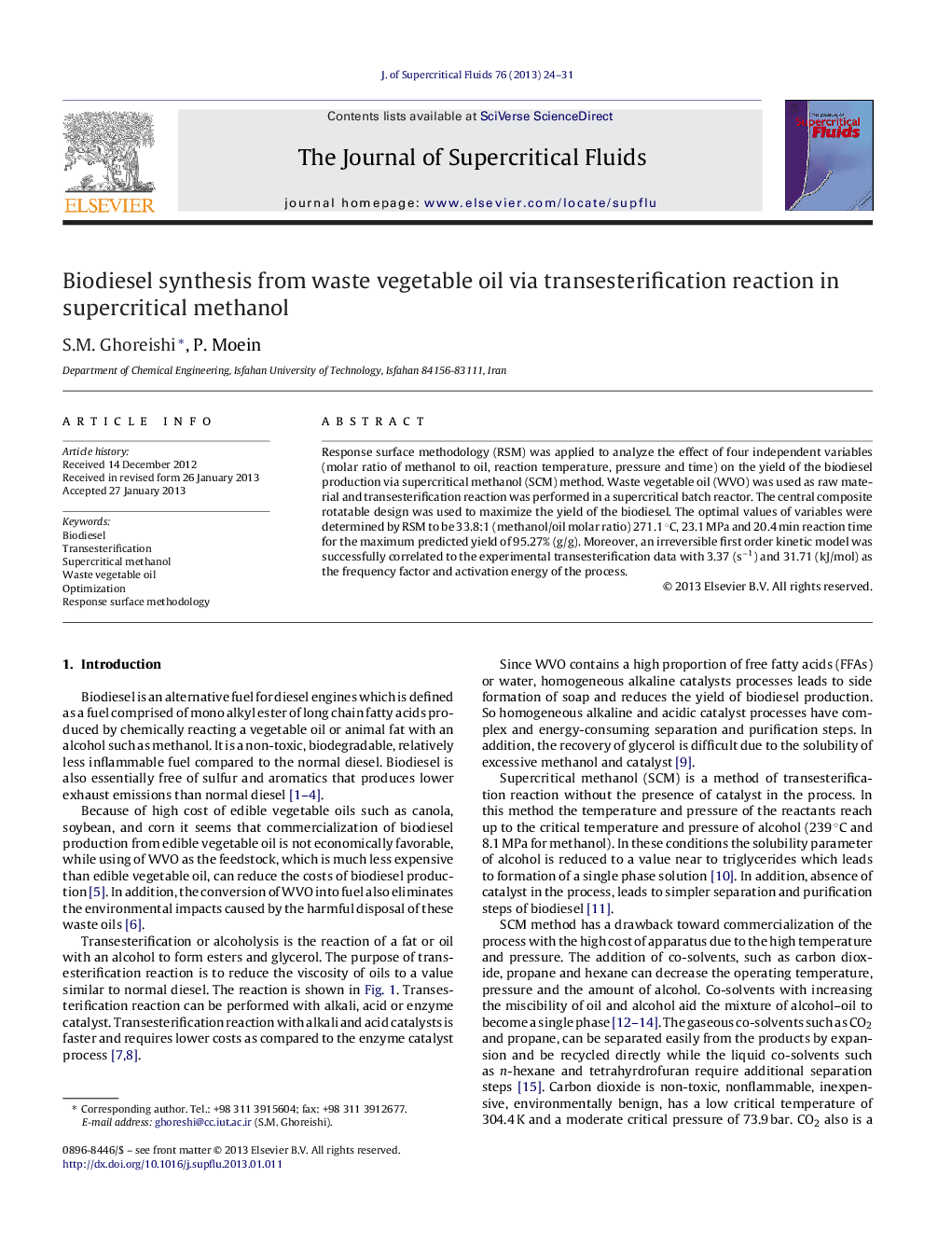| Article ID | Journal | Published Year | Pages | File Type |
|---|---|---|---|---|
| 230869 | The Journal of Supercritical Fluids | 2013 | 8 Pages |
Response surface methodology (RSM) was applied to analyze the effect of four independent variables (molar ratio of methanol to oil, reaction temperature, pressure and time) on the yield of the biodiesel production via supercritical methanol (SCM) method. Waste vegetable oil (WVO) was used as raw material and transesterification reaction was performed in a supercritical batch reactor. The central composite rotatable design was used to maximize the yield of the biodiesel. The optimal values of variables were determined by RSM to be 33.8:1 (methanol/oil molar ratio) 271.1 °C, 23.1 MPa and 20.4 min reaction time for the maximum predicted yield of 95.27% (g/g). Moreover, an irreversible first order kinetic model was successfully correlated to the experimental transesterification data with 3.37 (s−1) and 31.71 (kJ/mol) as the frequency factor and activation energy of the process.
Graphical abstractFigure optionsDownload full-size imageDownload as PowerPoint slideHighlights► Biodiesel was synthesized from waste vegetable oil for lower cost and pollution. ► Supercritical methanol (SCM) was used to produce biodiesel. ► SCM overcomes catalytic transesterification soap formation and complex purification. ► Biodiesel operating conditions were optimized via RSM for maximum biodiesel yield. ► First order kinetic model was applied for biodiesel synthesis via SCM.
